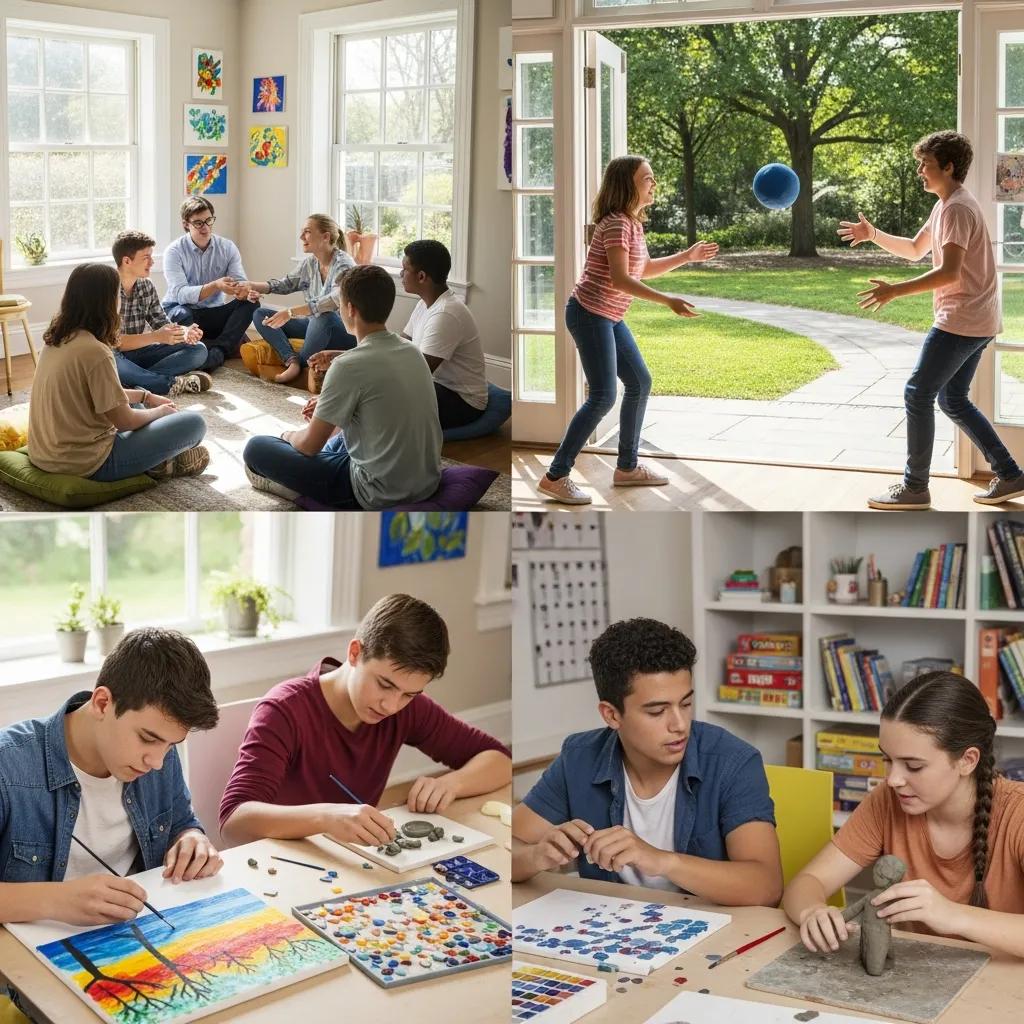
ADHD Symptoms In Teens
Learn to identify ADHD symptoms in teens with this comprehensive professional guide. Understanding these signs can lead to effective support

Learn to identify ADHD symptoms in teens with this comprehensive professional guide. Understanding these signs can lead to effective support

Recognizing the signs of autism in teens is crucial for timely intervention. This professional overview offers insights and guidance for

Understanding the impact of stress on teen mental health is crucial. Address stressors effectively to promote resilience and foster well-being

Recognizing the key symptoms of depression in teens is crucial for early intervention. Understand warning signs to support their mental

Navigate the complexities of teenage angst with insightful strategies that help youth manage emotional challenges. Equip them for a healthier,

Transform your wardrobe with dopamine dressing! Embrace vibrant colors and styles that uplift your mood and confidence. Enhance your joy

Unlock your ambitious competitive personality and achieve lasting success. Cultivate drive, resilience, and confidence with our expert guidance and support.

Overcome your fears with compassionate therapy for anxious avoidant attachment. Find the support you need to heal and strengthen your

Explore the Let Them Theory, emphasizing empathy and professional guidance. Enhance your understanding of support methods for better client relationships

Learn effective therapy strategies to support those with dismissive avoidant attachment. Improve connections and foster healthier relationships with compassion.
Compassionate support, expert guidance, and tailored programs for adolescent mental health.
Connect with Adolescent Mental Health today. Let us guide your teenager towards resilience and well-being.
mental health blog for teens, mental health blog for teenagers
Identifying mental health issues in adolescents can be challenging, as symptoms often manifest differently than in adults. Common signs include changes in mood, withdrawal from social interactions, and alterations in academic performance. Parents and caregivers should be vigilant and observant, as early detection can lead to timely intervention and support.
For example, a teen who previously excelled in school may suddenly lose interest in academics, experience frequent mood swings, or isolate themselves from friends. These changes can indicate underlying mental health concerns such as anxiety or depression, and recognizing them early can facilitate discussions about seeking professional help.
Open communication is vital in fostering a supportive environment for teens facing mental health challenges. Parents should encourage honest conversations, actively listen, and validate their teen's feelings. This approach helps build trust and ensures that teens feel safe discussing their struggles.
For instance, using open-ended questions like "How was your day?" or "What are you feeling right now?" can prompt deeper discussions. Additionally, creating a non-judgmental space where teens can express themselves freely can significantly enhance their willingness to share their thoughts and emotions.
In today's digital age, technology plays a crucial role in mental health support for teens. Numerous apps and online resources provide access to mental health tools, therapy options, and peer support groups, making it easier for adolescents to seek help discreetly.
For example, platforms like online therapy services and mental health apps offer guided exercises, mood tracking, and mindfulness practices that can be beneficial for teens. These tools empower adolescents to take charge of their mental health and provide them with resources they can utilize anytime, anywhere.
Peer support is an essential component of mental health for adolescents, as friends often play a significant role in each other's lives during this critical developmental stage. Encouraging teens to build strong, supportive friendships can help them navigate challenges and reduce feelings of isolation.
Research shows that teens who engage in open discussions about mental health with their peers are more likely to seek help when needed. Schools and community programs can facilitate peer support groups, providing a safe space for teens to share experiences and coping strategies, ultimately fostering a sense of belonging and understanding.